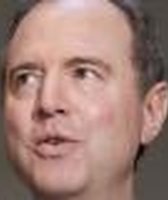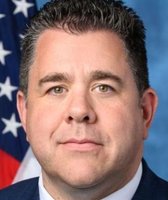Stand up for the facts!
Our only agenda is to publish the truth so you can be an informed participant in democracy.
We need your help.
I would like to contribute

President Donald Trump gives two thumbs up to supporters as he departs after playing golf at the Trump National Golf Club in Sterling Va., Sunday Nov. 8, 2020.
If Your Time is short
-
The Trump campaign and GOP allies are trying to find ways to reverse Biden wins in states that were closest.
-
Their efforts include making unsubstantiated claims of voter fraud, spreading misinformation, filing lawsuits, and other legal moves, such as a new order on election investigations from Attorney General William Barr.
-
Overall, the strategies are unlikely to erode the margins of Biden’s victory. Election experts say that they have seen no evidence of anything that would lead to the outcome of the presidential race being reversed and that Biden is the legitimate winner of the 2020 election.
In the days since Election Day, President Donald Trump and other Republican officials have engaged in an effort to deny, defy or overturn its results, using a combination of lawsuits, misinformation, challenges against election officials and other orders to disrupt the transfer of power to the new president.
Republicans’ efforts have been bolstered by a memo from Attorney General William Barr giving federal prosecutors the go-ahead to pursue investigations of suspected voter fraud, even before states are done with certification.
Other Republican politicians have backed Trump up by joining lawsuits to have legally cast ballots invalidated, by vaguely criticizing election "failures" or by calling for state investigations without specific evidence of wrongdoing.
Sen Majority Leader Mitch McConnell said Trump has a right to "look into allegations of irregularities and weigh his legal options …," but he didn’t cite any examples.
Trump himself has led an onslaught of misinformation, with all-caps tweets declaring "BALLOT COUNTING ABUSE!" and "WE WILL WIN!" He has made statements suggesting that Democrats sought to count illegal ballots to steal the election. No evidence supports this.
Sign up for PolitiFact texts
Their combined efforts have raised questions and fears about what will happen if Trump doesn’t ultimately heed the voters and step aside. Secretary of State Mike Pompeo did nothing to dispel that notion when he told reporters: "There will be a smooth transition to a second Trump administration."
So far, there are no signs the Republicans will succeed in their efforts; Biden’s margins of victory are simply too large.
But there are no signs that they’ll give up, either.
RELATED: Donald Trump’s Pants on Fire claim about illegal votes
Before Election Day, more than 300 election-related lawsuits were filed in dozens of states, including some cases that remained pending as voters cast ballots, and some seeking to invalidate ballots that had already been legally cast.
Following the election, Republicans filed new lawsuits in states where Biden was leading. The counts were continuing or the margins were close in Arizona, Georgia, Michigan, Nevada and Pennsylvania.
In some cases, Republicans sought to stop the counting of ballots or certification of results. In other cases, Republicans asked a judge to order changes related to ballot counting procedures, to review certain ballots or to demand closer access for observers.
In seeking to cast doubt on the results, Republicans have clung to conspiracy theories that ballots cast for Republican candidates were ruined with Sharpies, or argued that certain ballots were wrongly counted after the deadline or that the ballot counting process lacked transparency.
While some cases remain pending, the counting of ballots continued.
Some of the challenges, even if they had succeeded, wouldn’t have affected enough ballots to change the outcome. But that hasn’t stopped Republicans from trying to find fault, in any amount, to cast doubt about Biden’s win. In Georgia, a judge found no proof for GOP observers’ claims that 53 ballots in Chatham County had arrived past the deadline.
The Republicans have had some success in Pennsylvania challenges, but none yet that have reversed the results. Litigation continues over a state Supreme Court decision to allow ballots to be counted if they arrived three days after Election Day. U.S. Supreme Court Justice Samuel A. Alito Jr. granted the state GOP’s request to segregate those ballots in case they're ruled ineligible.
Kathy Boockvar, the state’s top elections official and a Democrat, had already ordered that ballots be segregated. And the number of segregated ballots so far has been too small to make a difference in the presidential race. State election officials said about 10,000 mail ballots were received during those three days. Biden was leading the state by about 49,000 votes, and dominating the mail-in vote.
Michael Dimino, a law professor at Widener Commonwealth Law School in Pennsylvania, said even if Republicans succeed in court, it wouldn’t necessarily change the election result.
"The cases involve not only the question of whether legal violations have occurred, but how the violations should be remedied," Dimino said. "Unless a court is convinced that the violations are so serious as to call the result into question, it will be difficult for President Trump to win Pennsylvania."
Georgia will hold a recount, and Trump is expected to pursue one in Wisconsin, too. But past recounts have resulted in a change of only hundreds of votes. Biden finished ahead in Wisconsin by about 20,000 votes and led in Georgia by about 14,000 votes.
Election experts said Trump would need to prevail in multiple states to climb from his 217 electoral votes to 270, an outcome they don’t foresee.
"Based on everything I see right now, I see nothing that has a really good chance of changing the outcome for Trump," said Steven Huefner, a law professor at Ohio State University.
Federal law allows states more than a month after the election to check for irregularities and finalize their results. This year, the deadline is Dec. 8.
But Barr’s instructions to federal prosecutors could complicate efforts to meet that deadline.
His Nov. 9 memo says they can pursue election investigations "if there are clear and apparently-credible allegations of irregularities that, if true, could potentially impact the outcome of a federal election in an individual State." Prosecutors don’t have to follow the past practice of waiting to launch investigations until the results are certified, he wrote.
That change prompted Richard Pilger, the prosecutor in charge of the Election Crimes Branch, to resign his post, stating that the new policy was "abrogating the 40-year-old Non-Interference policy of ballot fraud investigations in the period prior to elections becoming certified and uncontested." He will remain with the Justice Department.
Kendall Coffey, who served as a U.S. attorney in Miami in the 1990s and as a lawyer on Al Gore’s side in the 2000 recount, said it would be rare for any federal voter fraud investigation to conclude in one month. Such investigations involve multiple steps including interviewing witnesses and examining records, a process that can take months.
Before Barr’s memo, Nevada Republicans asked the Justice Department to look into allegations that about 3,000 people in Clark County had cast ballots illegally because they had moved, though they offered no evidence that the votes were illegal.
Coffey said Barr’s instructions won’t necessarily trigger more prosecutions or delay certification. "I don’t assume DOJ lawyers and agents on the ground are going to make up stuff or validate baseless allegations in order to help a candidate," Coffey said. "That is a great safety net."
Even so, they could keep the specter of fraud alive.
"I don’t know whether Barr’s memo will lead to investigations that come to any conclusion, but that may not be the point," said Loyola Law school professor Justin Levitt, who worked as a deputy assistant attorney general in the civil-rights division during President Barack Obama’s tenure. "I would expect a few offices to announce that they’ve opened investigations into voter fraud, which serves the purpose of the public narrative."
There may be some prosecutions to hold individuals accountable for misconduct, but they wouldn't directly affect a state’s ability to certify vote counts, Levitt said.
The Biden team has begun some transition planning, such as naming a COVID-19 task force and communicating with foreign leaders. But as long as Trump refuses to acknowledge his defeat, the transition team faces obstacles from the executive branch.
Under the 1963 Presidential Transition Act, the General Services Administration, the government’s real estate arm, ascertains the winner and provides funding and office space to assist with the transition. This year, several days after the race was called for Biden, the GSA has refused to set the transition in motion.
There are no specific rules about what triggers that step, said Max Stier, the CEO of the Partnership for Public Service, which has set up a presidential transition center. But this will be the first such delay since 2000, when Al Gore and George W. Bush were awaiting the outcome of a Florida recount.
Without that official go ahead, Biden’s team can’t meet with officials at federal agencies, complete permanent security clearances or get the allotted funding, which could complicate the transfer of power on Jan. 20.
Trump, in turn, has ordered cabinet agencies not to cooperate with the Biden team until the GSA triggers the transition, the Washington Post reported. As a result, the transition team cannot proceed with some key steps as it prepares to deal with a worsening pandemic and an economic crisis.
"Challenges we know of and the challenges we don’t are going to come around the corner," Stier said. "Having an administration ready to go on Day 1 is fundamental to addressing these problems."
Our Sources
Attorney General William Barr, Memo, Nov. 9, 2020
Ballotpedia, Ballotpedia's 2020 Election Help Desk: Presidential election results subject to lawsuits and recounts, Nov. 9, 2020
NPR, Trump Election Lawsuits Have Mostly Failed. Here's What They Tried, Nov. 10, 2020
New York Times, Barr Hands Prosecutors the Authority to Investigate Voter Fraud Claims, Nov. 9, 2020
New York Times, The Times Called Officials in Every State: No Evidence of Voter Fraud, Nov. 9, 2020
Tampa Bay TImes, How Florida’s top Republicans are navigating Trump’s assault on election results, Nov. 6, 2020
President Donald Trump. Tweet, Nov. 10, 2020
President Donald Trump, Tweet, Nov. 10, 2020
Washington Post, Pa. attorney general says there’s no need for additional intervention by Supreme Court with mail ballots, Nov. 7, 2020
Washington Post, White House, escalating tensions, orders agencies to rebuff Biden transition team, Nov. 9, 2020
TIME, Here Are All the Lawsuits the Trump Campaign Has Filed Since Election Day—And Why Most Are Unlikely to Go Anywhere, Nov. 9, 2020
Sen. Mitch McConnell, Senate floor comments, Nov. 9, 2020
Vanita Gupta, Tweet, Nov. 9, 2020
Rev.com, Secretary of State Mike Pompeo press conference, Nov. 10, 2020
Atlanta Journal-Constitution, Georgia judge dismisses Trump campaign case in Chatham ballot dispute, Nov. 5, 2020
Superior Court for the state of Arizona, Trump v Hobbs, Nov. 7, 2020
Superior Court of Chatham County, Georgia, Order, Nov. 5, 2020
State of Michigan court of claims, Opinion and order, Nov. 6, 2020
U.S. District Court, U.S. District Court of Nevada, Jill Stokke vs Secretary of State Barbara Cegavske and Clark County registrar Joe Gloria, Nov. 5, 2020
U.S. District Court Middle District Pennsylvania, Trump v Boockvar, Nov. 9, 2020
CNN, Top prosecutor quits after Barr election fraud order, Nov. 10, 2020
PolitiFact, Trump’s misleading claim about ballot signatures in Nevada, Oct. 28, 2020
PolitiFact, 2020 election lawsuits and ballot access: what you need to know, Nov. 2, 2020
PolitiFact, Sharpiegate, voter fraud claim in Arizona is False, Nov. 4, 2020
PolitiFact, Donald Trump’s Pants on Fire claim about illegal votes, Nov. 6, 2020
PolitiFact, Ted Cruz falsely claims Philadelphia is counting votes in ‘shroud of darkness’ Nov. 6, 2020
PolitiFact, The media have called the presidential race for Joe Biden. Here's what's next, Nov. 7, 2020
Telephone interview, Steven Huefner, law professor at Ohio State University, Nov. 10, 2020
Email interview, Richard L. Hasen, professor of Law and Political Science at the University of California, Irvine, Nov. 10, 2020
Telephone interview, Kendall Coffey, co-founder of Coffey Burlington and former U.S. Attorney, Southern District of Florida (1993-1996), Nov. 10, 2020
Telephone interview, Max Stier, the CEO of the Partnership for Public Service, Nov. 10, 2020
Email interview, Michael Dimino, a law professor at Widener Commonwealth Law School in Pennsylvania, Nov. 10, 2020







































